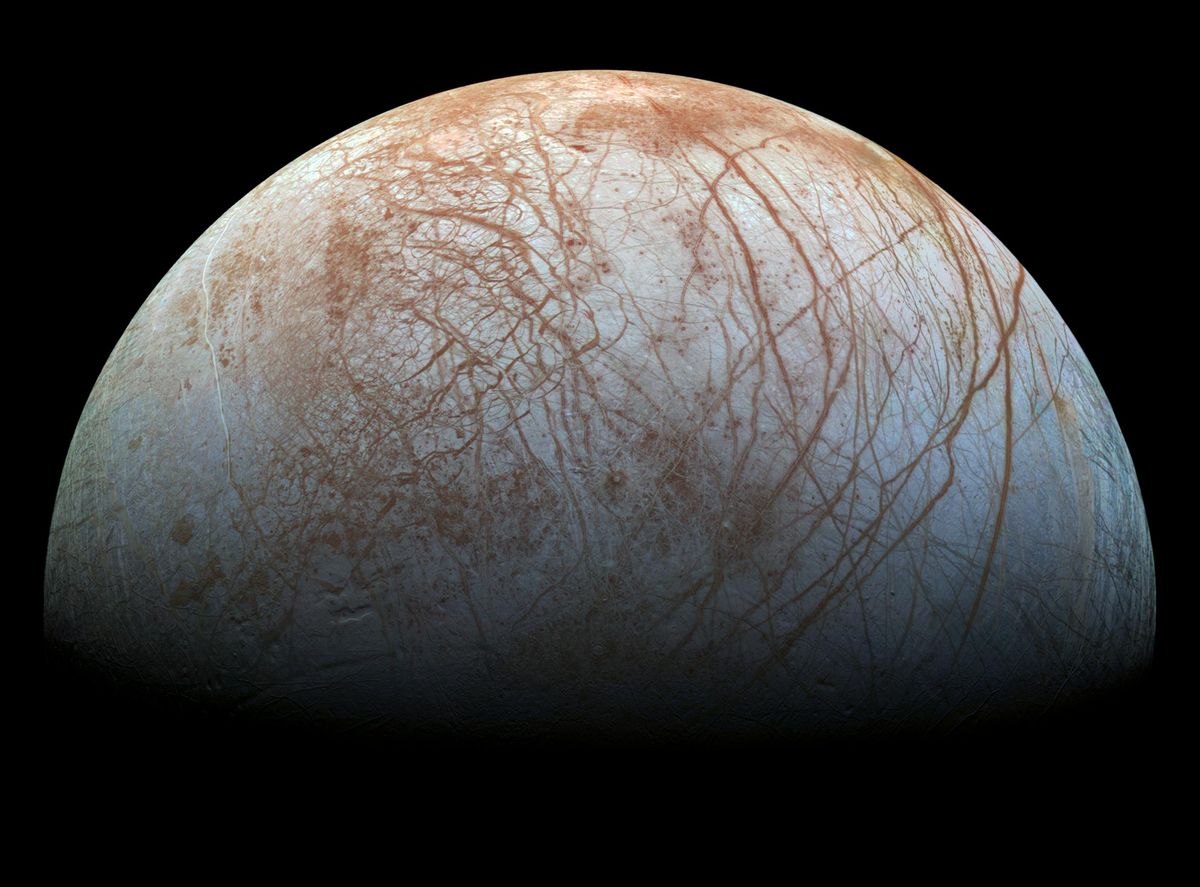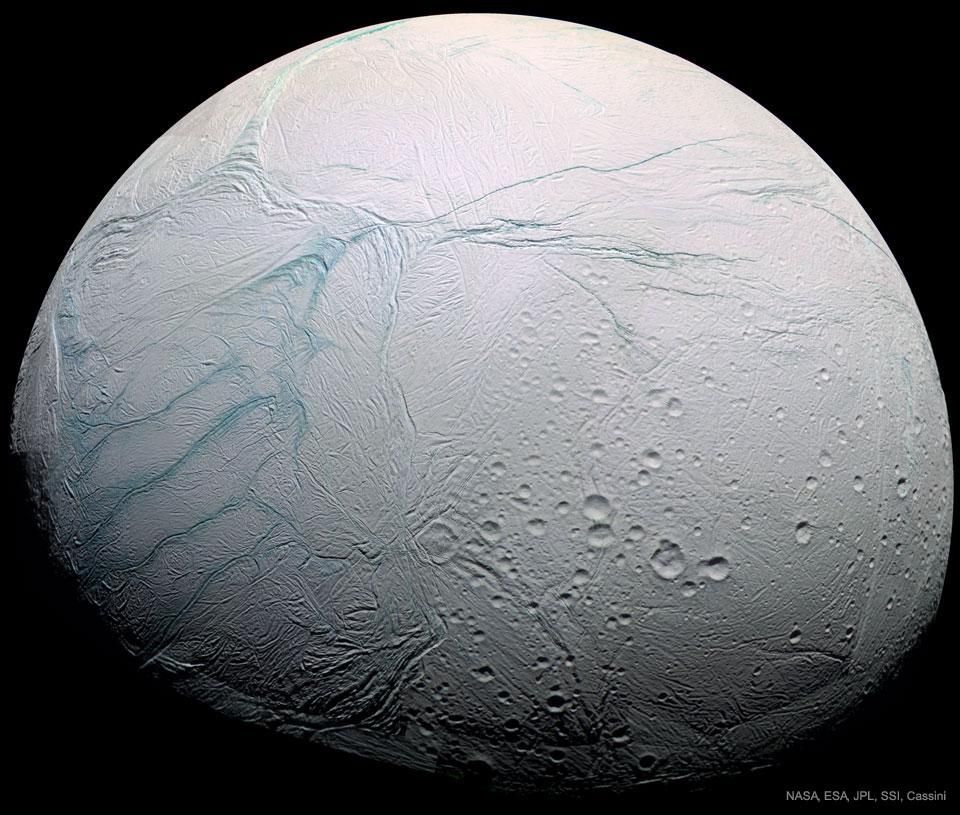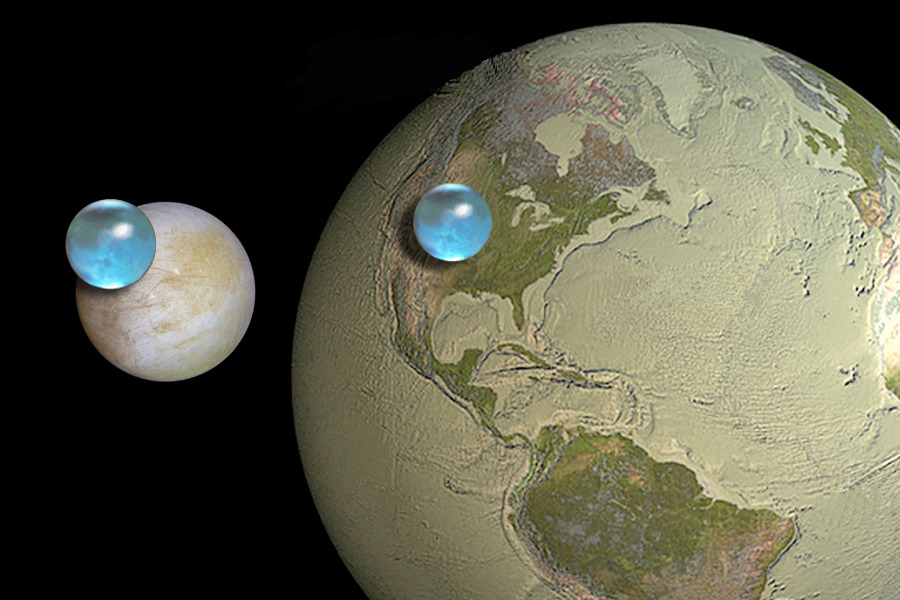Question Inhabitable place?
- Thread starter MJ Wilkinson
- Start date
You are using an out of date browser. It may not display this or other websites correctly.
You should upgrade or use an alternative browser.
You should upgrade or use an alternative browser.
ALL THESE WORLDS ARE YOURS, EXCEPT EUROPA. ATTEMPT NO LANDING THERE. USE THEM TOGETHER. USE THEM IN PEACE.”Europa, one of Jupiter's moons, has a water-ice crust.
Look how well that worked out for the crew of the Tsien!ALL THESE WORLDS ARE YOURS, EXCEPT EUROPA. ATTEMPT NO LANDING THERE. USE THEM TOGETHER. USE THEM IN PEACE.”
Catastrophe
"Science begets knowledge, opinion ignorance.
There is a really good photo of the surface near
Rhadamanthys Linea in Astronomy Now June 2019.
Also an excellent 6 page article entitled (Europa) Is there life . . . under the ice? Astronomy August 2001.
Rhadamanthys Linea in Astronomy Now June 2019.
Also an excellent 6 page article entitled (Europa) Is there life . . . under the ice? Astronomy August 2001.
Last edited:
Sounds like Europa has a shortage of every essential resource required for a colony except water.
Catastrophe
"Science begets knowledge, opinion ignorance.
Ken, this amplifies (and does not contradict) your statement but seems maybe a little more optimistic?Sounds like Europa has a shortage of every essential resource required for a colony except water.
https://solarsystem.nasa.gov/moons/jupiter-moons/europa/in-depth/
"Europa’s vast and unfathomably deep ocean is widely considered the most promising place to look for life beyond Earth. A passing spacecraft might even be able to sample Europa’s ocean without landing on the moon’s surface because it is possible that Europa’s ocean may be leaking out into space."
I have been reading all I can on Europa for these reasons. I see that Space.com itself has some good articles on the topic.

 www.space.com
www.space.com

 www.space.com
www.space.com
I admit that I've not even started looking into Enceladus yet.
Happy day!

Alien-life hunters are eyeing icy ocean moons Europa and Enceladus
The late 2030s are a realistic launch target for an alien-ocean explorer, should NASA choose to develop one.

If We Find Life on Europa or Enceladus, It Will Probably Be a '2nd Genesis'
It would be very hard for microbes to get all the way from Earth or Mars out to the ocean moons, a new study suggests.
I admit that I've not even started looking into Enceladus yet.
Happy day!
Catastrophe
"Science begets knowledge, opinion ignorance.
It is very interesting that there is liquid water in the outer Solar System. Looking at surface temperatures, taking Jupiter and Titan (largest satellite of Saturn) as examples:
The temperature in the clouds of Jupiter is about minus 145 degrees Celsius
Although it moves in latitude, the maximum measured temperature on Titan remains around --179.6 degrees Celsius, 93.6 Kelvin).
Since there is little warmth from the Sun, we have to look for internal heating to find water at or above 0 degrees C,,
The major heating source of Earth and its moon is radioactive heating, but the heating source on Io is tidal heating.
The temperature in the clouds of Jupiter is about minus 145 degrees Celsius
Although it moves in latitude, the maximum measured temperature on Titan remains around --179.6 degrees Celsius, 93.6 Kelvin).
Since there is little warmth from the Sun, we have to look for internal heating to find water at or above 0 degrees C,,
The major heating source of Earth and its moon is radioactive heating, but the heating source on Io is tidal heating.
Last edited:
MJ - sorry, I was thinking inhabitable, as in somewhere people might be able to live rather than inhabitable as in non-terrestrial life might live there. Looking for evidence of life is very good reason to look closer at Europa but it does not look suited to colonisation.
Catastrophe
"Science begets knowledge, opinion ignorance.
Back to the gushers for the first point and nods of agreement (at least in the short to medium term) for the second. CatMJ - sorry, I was thinking inhabitable, as in somewhere people might be able to live rather than inhabitable as in non-terrestrial life might live there. Looking for evidence of life is very good reason to look closer at Europa but it does not look suited to colonisation.
Catastrophe
"Science begets knowledge, opinion ignorance.
Comes back to how we define inhabitable.
Same question: terraforming or colonisation?
Terraforming - in your dreams for most locations - colonies ten a penny in comparison.
Same question: terraforming or colonisation?
Terraforming - in your dreams for most locations - colonies ten a penny in comparison.
Catastrophe
"Science begets knowledge, opinion ignorance.
Comes back to how we define inhabitable.
Despite the presence of liquid water, the super cold temperatures are almost certainly a thermodynamic barrier to the chemical activity required to formulate life, or even sustain it in the absence of a thermally acceptable habitat.
For any of these really cold moons that are believed to have liquid water, does anyone have a mechanism to get a reasonable temperature (ca. 5-25C) to provide an environment where life could form and survive? It seems totally impossible for a really cold aqueous milieu to provide the conditions for all those critical chemical reactions to occur.
Reactions for life require in the chemicals considerable translational, rotational and vibrational energies in order to form new covalent bonds, undergo highly complex interactions, form membranes, etc. Really low temperatures, even with everything else you need, is likely a very dead-end, literally and figuratively.
Ken - and when the Sun expands? Europa for the summer hols?
I doubt that an expanded sun would make it any better. Looking for life there makes sense; attempting to introduce it - humans and the other biology needed - doesn't.
The expectations , IIRC, are that the ocean bottoms will have some thermal vents to allow favorable conditions for life.
You only have thermal vents with a hot core. None of these are suggested to have hot cores. Tidal "heating" is what seems to be the primary source for liquid water in all cases. If it gets us into the room temperature range, that might work. But long term stability of that temperature is critical. It can't be bouncing around from one century to next, or whenever.
The thermodynamic barriers are easily cleared on the rocky planets through some period of their existence. They all have/had hot cores. The thermal activity required of complex biomolecules and all the mechanisms involved is not going to happen, in slow motion, in really cold water.
Life is by far the most complex organization of matter known to man. The simplest life form today requires an enormous number of enzymatic activities, etc. going on, all at the same time. For this reason, life on earth has a limited temperature range in which to accomplish this. It is pure chemistry, but on a grand scale.
And modern life has had about 4 billion years to evolve to where it is today. One must assume there were more severe constraints on the start-up, since conditions had to meet exacting requirements. Chemical evolution into the first life very likely had much less wiggle room than that granted by evolution.
Extremophiles aside (they evolve later), one has to consider this enormous complexity and the likelihood of it happening in the deep cold (without a heat source as you noted). Certainly it will be found that skeptics in the biochemistry community number more than one.
Last edited:
So when is Splashdown?Europa, one of Jupiter's moons, has a water-ice crust.
The most habitable place in the solar system, next to the Earth, is a space colony.
Humans moved from rock caves in the Earth (the low ground of Earth) to constructing homes and other facilities and networks, including transportation networks, on the surface of the Earth (the high ground ground of the Earth). Humans will move from a rock cave in space (the low ground of space) to constructing [gravitied] homes and other facilities and networks, including transportation networks, on the surface of space (the high ground of space).
Humans moved from rock caves in the Earth (the low ground of Earth) to constructing homes and other facilities and networks, including transportation networks, on the surface of the Earth (the high ground ground of the Earth). Humans will move from a rock cave in space (the low ground of space) to constructing [gravitied] homes and other facilities and networks, including transportation networks, on the surface of space (the high ground of space).
Last edited:
Similar threads
- Replies
- 1
- Views
- 2K
- Replies
- 14
- Views
- 4K
TRENDING THREADS
-
New interpretation of QM, with new two-phase cosmology, solves 15 foundational problems in one go.
- Started by Geoff Dann
- Replies: 320
-
Hubble Tension explained (including its value) by the two phase cosmology
- Started by Geoff Dann
- Replies: 210
-
Basic Error: The accelerating Universe conclusion - reason
- Started by Gibsense
- Replies: 263
-
-
The birth of the Quantum Convergence Threshold (QCT):
- Started by Capanda Research
- Replies: 84
-
-

Space.com is part of Future plc, an international media group and leading digital publisher. Visit our corporate site.
© Future Publishing Limited Quay House, The Ambury, Bath BA1 1UA. All rights reserved. England and Wales company registration number 2008885.


